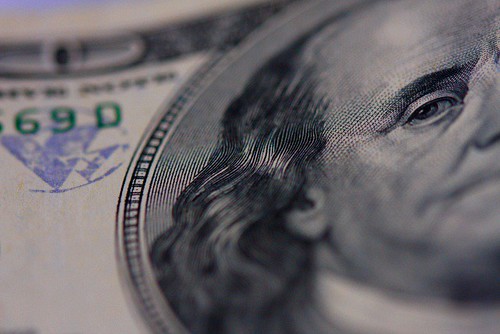One year ago this past Friday the US Supreme Court ruled, in its historicCitizens United decision, that constraining corporate spending on political broadcasts was unconstitutional. In what some believe to be a not entirely unrelated event, House Republicans dissolved The Select Committee on Global Warming at beginning of the new Congress.
Sen. Boehner (R-OH), Speaker of the House, has characterized climate change as “comical”; Sen. Markey (D-MA), Chairman of the Committee, has described the American support for action on climate change as a “deafening” chorus. On climate change, today’s Congress stands divided – divided in all but one way: there is little action. Indeed, there may be no action for some time to come.
Why is that? According to some, the lack of progress on campaign finance reform has restricted the possibility of US climate policy. Political donations, they argue, outspend environmental interest and target incumbents in ways that impede progress.
The 2010 election was notable not only for its historic shift in the balance of power, but also for being historically expensive – at $4 billion total, or $87 per voter, campaign spending broke all American records, quadrupling what was spent in the 2006 midterms. Some claim that this money bought the election; others point to examples of well-financed failed campaigns. Either way, spending is up and climate down, so to speak, in ways that not only coincide but correlate. It appears that while politicians reap large donations, climate and clean energy are among the national priorities that will pay the steepest price.
Dr. Carl Safina, President of the Blue Ocean Institute and author of several books on marine ecology, has commented on the shaping effects of money on the national dialogue. “As long as we have the distortion caused by the influence of large corporate money in politics we will not be able to have an honest debate on the facts or the issues,” Dr. Safina said in a phone interview. “And we will not be able to consider what’s best for the country.”
According to Americans for Campaign Reform, over the period of 1990-2008 the energy industry outspent the environmental movement by a factor of 20:1 on campaigns. The disparity in contributions to Congressional war chests rose to 30:1 in the lead-up to the Energy Policy Act of 2005 energy legislation – legislation that included heavy incentives for clean coal technology. This trend is only likely to expand. The Supreme Court’s ruling in Citizens United that corporations were permitted to make unfettered, undisclosed campaign contributions will no doubt see spending increase as it becomes more partisan as well.
Money does not buy elections (witness Meg Whitman or Linda McMahon), but it does buy influence. Each House member who voted yes on an amendment to gut the 2009 cap-and-trade bill “received an average of $37,700 from the Oil & Gas, Coal Mining and Nuclear Energy industries between 2003 and 2008, more than three times as much as the $11,304 received by each legislator voting No” according to a study by Maplight, a nonprofit, nonpartisan research organization that tracks money in politics. Influence, in this instance, opposes clean energy innovation and efficiency.
Witness the dissolution of the The Select Committee on Global Warming, created in 2007 by Congresswoman now Minority Leader of the House Nancy Pelosi (D-CA). Republicans claimed the committee was redundant, and that cutting it would save money. This latter point is true – a meager $2 million in savings, compared to the projected costs of climate change. “Unfortunately, many of the new members elected to the House have expressed opinions ranging from skepticism to outright denial about the facts regarding climate change,” Dan Lashof, director of the climate center at theNatural Resources Defense Council (NRDC), said in an interview last week with CBS News.
To advance energy and climate legislation, environmental advocates needs to look for new partnerships. They would do well to support campaign finance reform, as well. Thankfully, some of this is happening already.
Supporters of Fair Elections Now Act (S. 752 and H.R. 1826), a bipartisan bill introduced to both the House (March 2009) and Senate (April 2009), include NRDC, the Sierra Club, League of Conservation Voters and 1Sky. Though the bill fell short of a vote in the House, and was not taken up by the Senate, it did signal growing support from the environmental community. According to Dan Weeks, President of Americans for Campaign Reform, “Campaign money from wealthy interests like big oil and gas too often determines who runs for office, who gets elected, and what they do in office. What’s changing now is the willingness of grassroots groups across the issue and ideological spectrum to step up and make campaign finance reform a priority alongside the other crucial battles they fight.” (I spoke to Dan recently on another program. Click here for the podcast.)
In 1858, Lincoln said that he did not expect “this house” – the Union of American states – to fall, but to cease to be divided. Until we fix campaign finance, I fear our house will remain divided. And division is no fix for the fix we’re in.
Source: Originally published in On Earth, January 26, 2011.
(Photo provided courtesy of tetsumo @ flickr. Used under the Creative Commons license.)

